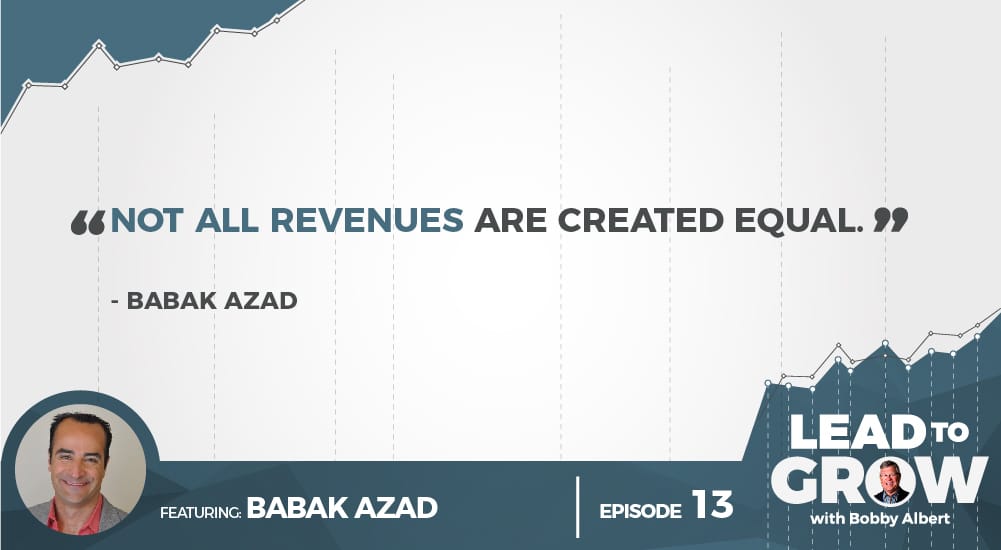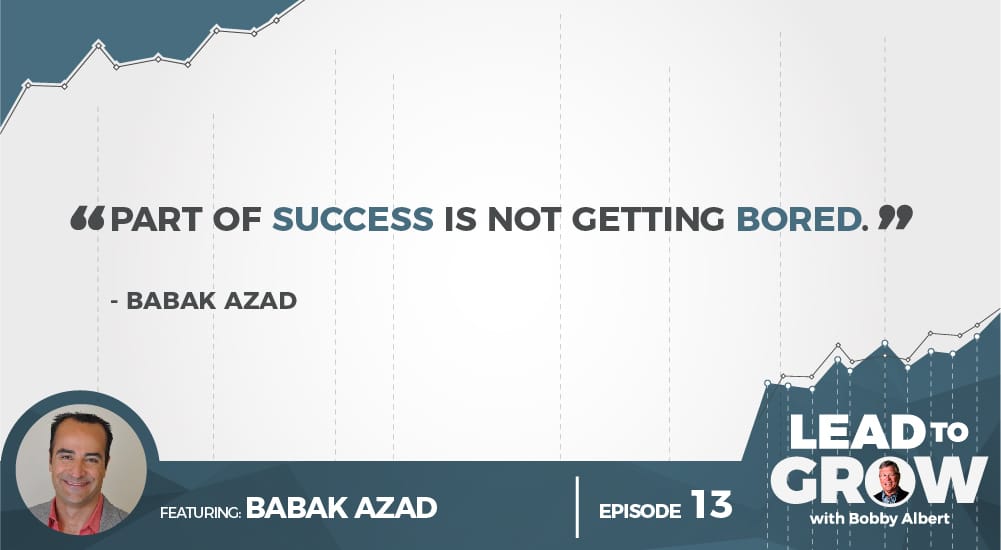What This Founder Learned When His First Business Fell on Its Face

Babak Azad had planned this for over a year.
He had quit his eight-year career at Beachbody, where he helped excel their revenue from $100MM to $1B.
But after three months of working together … he and his business partners split up. Babak's wife had just given birth to their second child.
With a growing household, no job, no business, Babak had to do something.
This is his story and his lessons on leadership.
On this episode of the Lead to Grow podcast, we get a chance to hear from the founder of Round Two Partners. He discusses how his view on leadership has evolved since starting his own company, where he now helps businesses within the $15 to $20MM range scale.
Sometimes, the Plan Changes
Babak worked with Beachbody for over eight years as their SVP of Media & Acquisition. He oversaw three different areas of their business. Before this, he worked at Napster in Corporate Development. This is one smart guy.
When he left Beachbody, he had a plan: He wanted to let his entrepreneur muscles flex. It took over a year of planning, but he and a few others had a wonderful idea and a great business plan.
It lasted less than six months.
The company disbanded, and everyone went their own way, leaving Babak with a wife and two children to care for and no real plan.
But he didn't sit on his hands.
He started calling every contact he had. He had no real business plan, but he just told everyone his experience in digital media, and that if they knew someone he'd be of service to, to pass his name along.
Calls started coming in.
He says he's still trying to find his feet, but since founding Round Two Partners three and a half years ago, he's seen tremendous success. Specifically, Round Two helps businesses who've plateaued around the $20MM mark.
Babak's expertise is especially helpful at this stage to help these businesses continue to scale.
Here are three lessons he shared from his experience:
When You Find Out Who You Are, Things Really Take Off
He says his company is still developing their story, but they have found their sweet spot with their $20MM companies.
Learning who you are, what you can do, and what you can't do, truly enables you to make an impact. “If I can't help people, I just say it," said Babak.
It's not just about good versus bad -- it's about fit.
Impose Processes on Yourself to Increase Discipline & Accountability
Motivation and self-discipline are necessary and useful in leadership. But, you should put specific processes in place that will push you toward success.
These are especially helpful in case you have a moment of weakness.
Take a simple example like the gym: It's a lot easier to force yourself out of bed at 6 am when you know your gym buddy will be on their own if you don't show up
As a Leader, Be Vulnerable
How do you feel when someone is vulnerable with you? Do you feel inspired? Connected?
Rarely are we upset at any individual for their vulnerability.
We usually feel empathetic. We see them on a deeper, more human level. Often, those who share their humanity inspire us to say, "I've been there, too!"
But far too often, leaders believe vulnerability equates to weakness.
It's a common temptation for leaders, said Babak.
But, as leaders, we must find a way to inspire and to connect around our vulnerability.
Babak offered an easy way to fight the vulnerability lie. When faced with a choice on whether or not to be vulnerable, just ask yourself:
"How do I feel when someone else is vulnerable?"
Especially when leaders are vulnerable, units become teams, ideas become action, and outcasts find a voice.
Be vulnerable.
Bobby's Favorite Question:
If you were having lunch with someone, what's the one thing you would want them to walk away with after having a conversation with you?
Here was Babak's answer:
He would want the other person to walk away thinking, “That's a good human being.”
I think that's a great way to end it!
This blog post is from a podcast interview with Babak Azad, founder of Round Two Partners.
Click here to hear this full episode. If you don't use iTunes, you can also find the full list of episodes by clicking this link.











